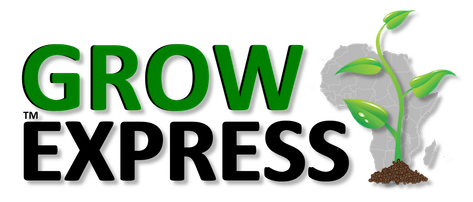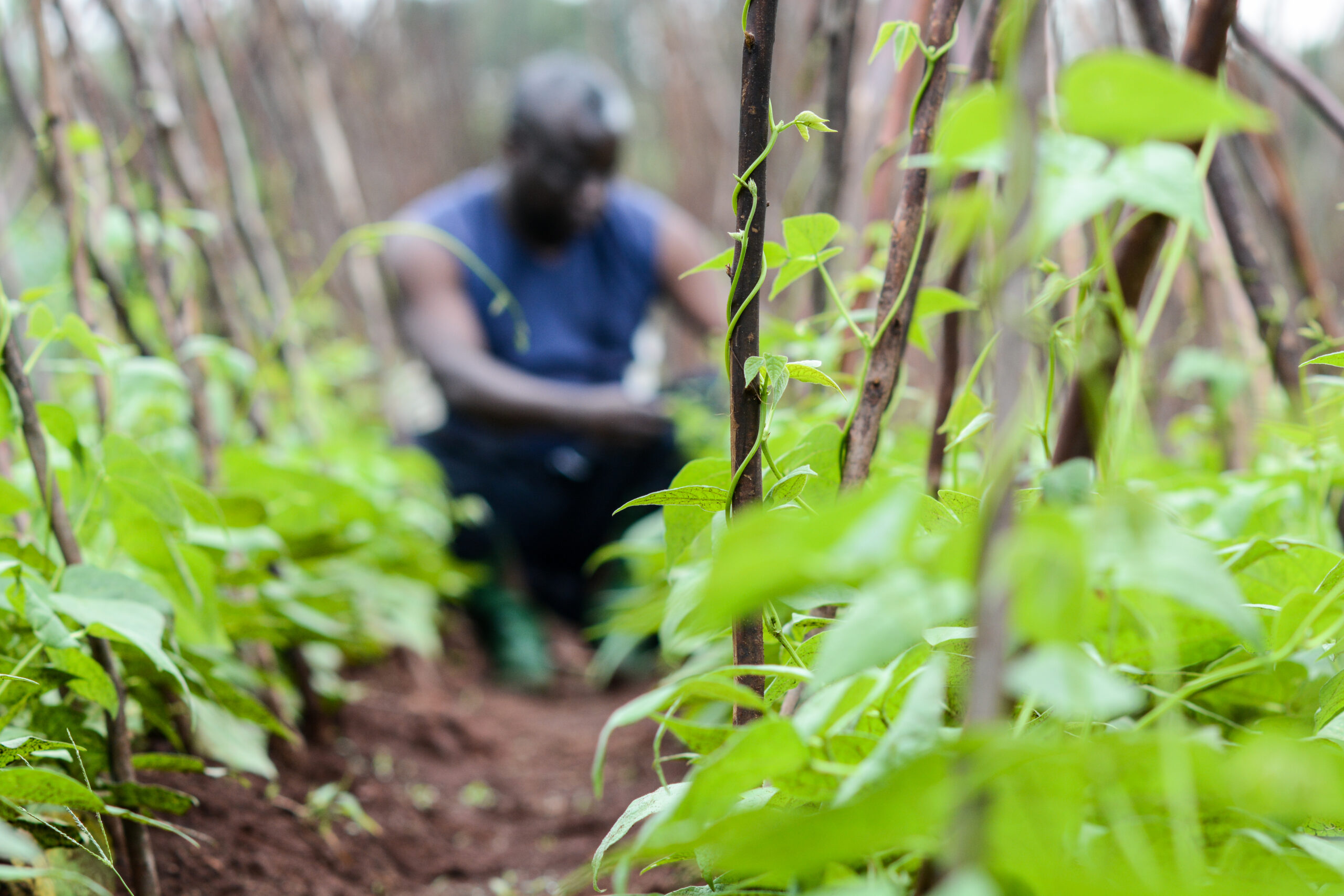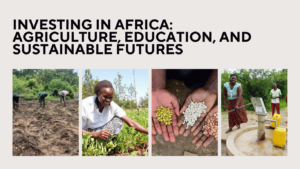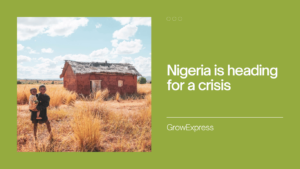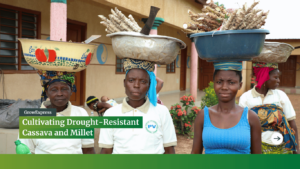The head of GrowExpress Ltd.’s Nigerian model farm, Thomas Wegener calls for less biofuel and lower meat consumption worldwide due to the threat of famine in emerging African countries as a result of the Ukraine war. He talks about the experience in the field of agriculture in Nigeria.
Interview with CEO Thomas Wegener of GrowExpress Ltd, Nigeria, questions asked by Dr. Thomas Schulte, lawyer and specialist author from Berlin.
Over 100 million people are at risk of famine worldwide because of the war in Ukraine. Grain does not reach Africa, grain exports are stopped. Thomas Wegener comments: „The situation is alarming and serious. At the moment, exports from Russia and Ukraine have stopped or are running with difficulty. In addition, fields in Ukraine cannot be cultivated well at the moment and prices have skyrocketed worldwide because of the war.“
How dangerous is the export stop for the world market?
Thomas Wegener: The Russian state acts as the world’s largest grain exporter, and in addition, volumes from Ukraine are falling away. Globally, we are talking about one third of all wheat exports. More than 25 countries in Africa, the Middle East and the Near East get more than half of their wheat imports from these two countries alone.
Food prices are skyrocketing. That should actually boost production worldwide. Why doesn’t the market regulate itself?
Thomas Wegener: Prices were already 50 percent higher before the war than two years earlier. Since the outbreak of the war, they have risen again by more than 30 percent. They are now higher than they have been for 50 years. Agriculture needs land, fertilizer and water. To ramp up production significantly in the short term would mean using more forest and natural land. Fertilizers are also in short supply, as Ukraine and Russia are major exporters of them. Fertilizer has become three to four times more expensive. This means that an important adjusting screw for increasing yields is missing.
Why is the international supply of food so vulnerable?
Thomas Wegener: The soil in Russia and Ukraine is particularly suitable for high-yield agricultural cultivation; the same applies to Western Europe. Here, however, everything is more densely populated. You can’t just ramp up production quickly somewhere else. Moreover, we cannot forbid countries like India or China to feed food to livestock. The result is extreme price increases that cannot be absorbed in Africa.
Has Europe also become too dependent on Russia for food production?
Thomas Wegener: Important areas for world supply will be lost – and perhaps in the longer term. We have to compensate for this by productive cultivation elsewhere, including in Europe. In Europe, we import a lot of feed, which could be reduced by consuming less meat. Overall, however, we will need more trade, not less, in the wake of climate change. Only half of the world’s population can feed themselves healthily by producing within a 1000 kilometer radius. In addition, population growth is high in Africa and Asia – climate change will primarily affect these regions. Researchers predict that Africa’s population will double by 2050. To give us an idea, in thirty years Nigeria should have the same number of people as the entire European Union.
This raises the question: What to do?
Thomas Wegener: In Nigeria, we are expecting a population of 400 million people soon. Many are assuming a horror scenario, but that doesn’t have to be the case if the right course is set. We need to move away from imports, which result from oil wealth, and toward a new self-sufficiency. „Helping people to help themselves“ so to speak, we are demonstrating this with our model estate in Oyo State, Ibadan. With the involvement of the local population, we are using the possibilities of mechanization, good seeds and fertilizer. That needs new technologies and approaches.
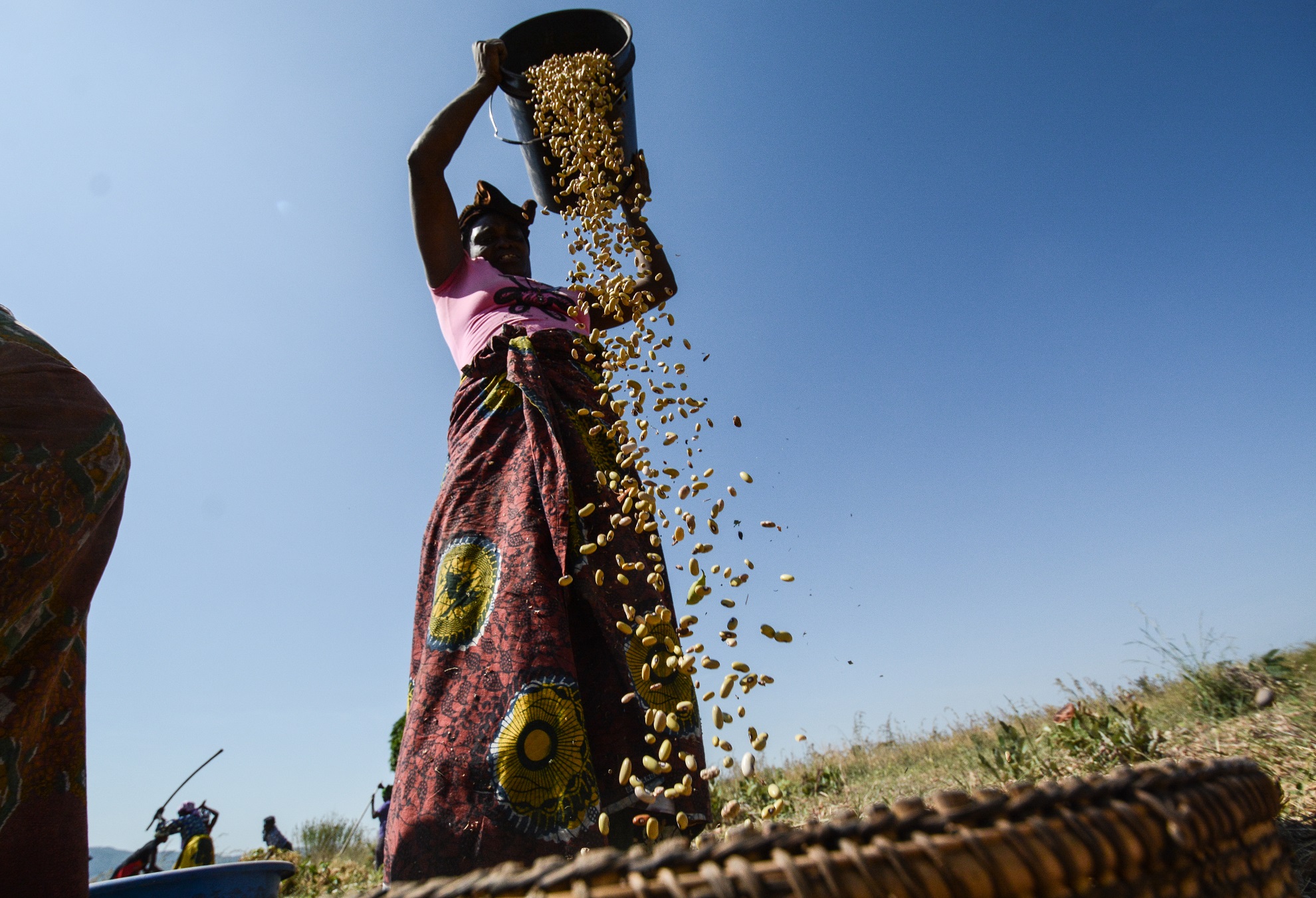
What is the specific situation in Nigeria?
Thomas Wegener: Nigeria is the most populous country in Africa and one of the strongest economically. There are 36 federal states. The official capital is Abuja. Of the nearly 192 million current inhabitants, almost 21 million live in Lagos. The population consists of at least 250 ethnic groups. The country is divided into two parts, with mainly Muslims living in the north and mainly Christians in the south. The north is comparatively poor and the south is comparatively prosperous due to the oil oil, which accounts for 90 percent of export earnings, but is nevertheless more of a curse for the country and the population. Distribution struggles around the black gold not only endanger political stability, but also have a devastating effect on the state of the ecosystem around the fertile Niger Delta. But there are opportunities for long-term change, such as the cross-border project of GrowExpress Ltd. The working model farm is located near Ibadan, in the Christian south of the country. Due to its oil industry, Africa’s strongest economy has neglected agriculture in recent decades and relied too heavily on imports. The natural resources of soil, water and sun are supplemented by seeds, fertilizer, mechanization and on-site education and training across borders. Together with the Nigerian government, Oyo state development programs such as OYSADEP and GES, the Ministry of Agriculture, the International Tropical Institute (IITA) in Ibadan, GrowExpress Ltd. is working to transform production and clearly develop the value chain of cassava, maize, soybeans, and other agricultural crops that grow very well locally.
What are the tasks GrowExpress Ltd. is dedicated to?
Thomas Wegener: GrowExpress Ltd. does not manage the agricultural land entrusted by the state (cultivated area of 800 ha) itself, but works with local smallholders to strengthen them through a partnership program. Production is supported by an „outgrower“ program of up to 550 farmers with a cultivated area of 2000 ha. The local partners are trained under the central control and planning of the company to significantly increase the yield of the land. GrowExpress Ltd. provides local farmers with know-how, seeds and fertilizers, and also cedes land to them in addition to their own land. Clear framework conditions and purchase guarantees for the food produced after harvesting ensure security of supply for the population, strengthen the rural region, prevent rural exodus and prevent monocultures. Another requirement for obtaining the model estate was that the land serve Nigerian farmers and not multinational corporations. In the long term, GrowExpress pursues the goals of creating secure jobs, stability of basic services, food security and infrastructure development as a contribution to peaceful coexistence and balanced coexistence in the multi-ethnic state of Nigeria.
V.i.S.d.P.:
Dr. Thomas Schulte, lawyer and expert author from Berlin.
Contact:
GrowExpress Limited
Kingsley Ekwueme
Managing Director – GrowExpress Ltd.
Cocoa House, Dugbe
200263 Ibadan
Nigeria
Tel:+234 7031135981
Mail: AtYourService@growexpress.biz
Web: https://growexpress.org
Company Description:
GrowExpress Ltd office is located in Nigeria, Cocoa House, Dugbe, 200263 Ibadan. Completed in 1965 at a height of 105 meters, Cocoa House was once the tallest building in Nigeria and the first skyscraper in West Africa. It is located in Dugbe, one of the main commercial areas in Ibadan, Oyo State, Nigeria. The GrowExpress Ltd. company farms an estate of 800 hectares about 200 km north of the megacity of Lagos, Nigeria. For more information, visit: https://growexpress.org
Press contact:
Farmer Future e.V.
Chairman of the board Thomas Wegener
Taunusstrasse 1
14193 Berlin
Tel.: +49 1522 954 1604
Mail: charity@farmersfuturefoundation.org
Web: https://farmersfuturefoundation.org
